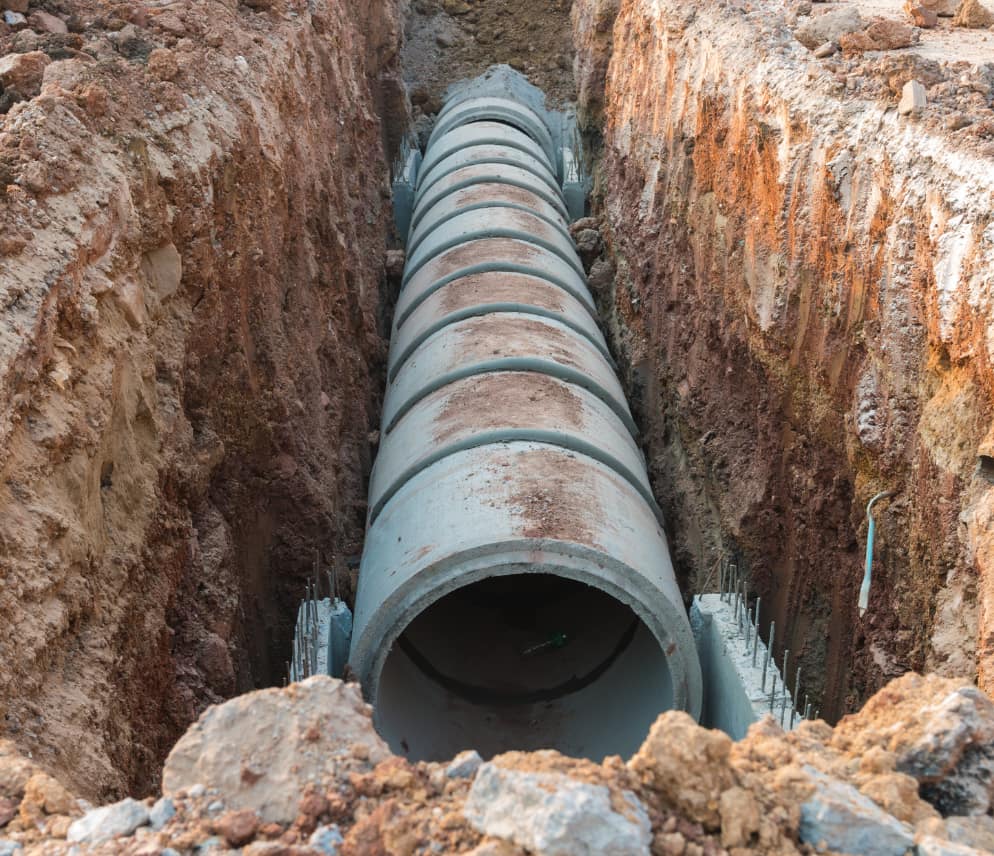Trench and excavation work are an essential part of many construction projects. They are typically conducted to accommodate running cables, pipes, and equipment underground, and are among the most hazardous in the industry. A trench is defined by its depth being equal to or greater than its width, making these excavations particularly perilous for construction workers. Those involved in trench work face significant risks daily, with lapses in safety protocol increasing the danger of these accidents.
According to the U.S. Department of Labor, trench and excavation work led to 39 fatalities across the nation in 2022 alone. Unfortunately, this was more than double the deaths that occurred the previous year, showing that these accidents are increasing in both number and victims. Here’s how hazardous these trenching accidents can be: just this past August, a worker died in a trench collapse in San Diego. This marks the third trench-related fatality between June 2023 and August 2024, and is an indication of how dangerous trenching accidents in California can be. Without stringent safety precautions and measures, trench collapse accidents can result in catastrophic injuries or even death, highlighting the importance of vigilant safety practices in these high-risk projects.
One of the most effective ways to prevent trench accidents in California is by understanding the common causes of these incidents. At Roberts Personal Injury & Car Accident Lawyers, our team of California construction lawyers have firsthand experience with the frequent causes of trenching accidents and the severe impact they have on victims. By identifying and addressing these causes, we can better advocate for improved safety measures and practices, as well as reduce the number of trenching accidents overall, keeping our construction workers safe. Knowledge of these hazards not only helps in mitigating risks but also ensures that workers are better protected from the potentially devastating consequences of trench accidents.
What Is a Trench Collapse?
A trench accident, or trench collapse, can occur when unprotected trench walls suddenly give way, burying workers with thousands of pounds of soil. Trench collapse accidents are more likely to result in fatalities compared to many other construction-related accidents. These accidents typically occur for various different reasons, usually stemming from inadequate safety and construction measures. A trench collapse can trap or bury workers, posing severe risks of severe injury or death, highlighting the importance of proper trench safety measures and strict adherence to safety protocols.
Common Causes Of CA Trench Failures

Several common causes of trenching accidents can lead to devastating consequences, but understanding these causes is just as important for preventing such incidents. These causes often include a lack of adherence to safety protocols. By recognizing these hazards, steps can be taken to mitigate risks and ensure worker safety before and during trenching projects. At Robert’s, our team of Stockton and Modesto based personal injury lawyers has witnessed these causes firsthand while representing victims of trench failures throughout the state.
Unstable Soil
A common cause of trench collapse is unstable soil. When the soil surrounding an excavated trench is unstable, it significantly increases the risk of a collapse. Proper soil testing is an essential safety measure before excavation begins and should be conducted at various stages throughout the project to make sure the soil can support the trench safely.
However, even when soil tests reveal that the soil conditions are less than ideal, some projects may proceed despite the risks. This is often due to companies prioritizing profit over safety. Overlooking soil conditions can leave workers vulnerable to severe injuries or even death, highlighting the critical importance of adhering to safety standards on a construction site and addressing soil stability issues before continuing with trench work.
Improper Slope Of The Trench
Improper sloping is another common cause of trench accidents that significantly increases the risk of instability and potential trench failure. When a trench is not sloped according to safety standards, the likelihood of soil collapse increases, as the unsupported walls may not be able to withstand the pressure exerted by the surrounding earth. This oversight in the slope of a trench can lead to dangerous and even fatal trench accidents, emphasizing the critical need for proper sloping techniques and supervision to ensure the safety and stability of trench operations and construction site workers.
Negligent Training & Equipment
Employer negligence is an unfortunately large contributor to trench accidents. Negligence on behalf of the employer can manifest in various ways, such as:
- Inadequate safety training
- Neglecting essential equipment repairs
- Failing to provide necessary personal protective equipment (PPE)
In deep trenches, workers are required to wear a harness and lifeline to ensure their safety while working within the trench. When employers neglect to offer or require these critical safety measures and training, the risk of trench collapse and severe personal injury increases significantly, putting workers in grave danger. Addressing these issues through proper training, equipment, and maintenance is essential to preventing dangerous trench accidents and ensuring a safe working environment.
Failure to Inspect the Trench Regularly
Failure to regularly inspect trench conditions is also another common cause of trench collapse, as soil conditions can shift significantly after weather events occur, as well as other environmental factors. An overnight storm can compromise the stability of trench walls, making them prone to causing a trench accident, which means they should be inspected before further work is done. Additionally, if heavy construction equipment operates too close to a trench, it can further cause the walls to become unstable. Regular trench inspections are essential to identify and address these risks to promote safe and secure conditions for construction workers.
Lack Of Protection Systems
Lack of proper protection systems is another frequent cause of trench collapse. Commonly used protection systems include reinforced walls, bracing, or trench boxes. These systems are designed to prevent the surrounding soil from caving in on workers in the trench, providing important stability and safety for workers. When these protective measures are absent, poorly designed, or improperly installed, the risk of a trench collapse increases significantly and could trap or bury workers under tons of soil. Using adequate protection systems during tench construction is essential to reducing the likelihood of these dangerous incidents and protecting those on the job.
Common Trenching Accident Injuries in California
Trench collapse accidents in California are notorious for causing a wide range of serious, life-altering injuries that can permanently prevent workers from returning to work and impact their ability to earn a livelihood. These accidents can lead to debilitating conditions that require long-term care and rehabilitation, or even death. Below is a list of frequent injuries that construction workers sustain in trenching accidents:
- Traumatic Brain Injury (TBI) – When heavy soil or debris strikes the head, it can cause severe brain damage, especially if proper PPE is not worn. These injuries can lead to cognitive impairment and long-term disability.
- Broken Bones – The immense weight of a trench collapse can crush limbs, as the soil can easily weigh 4,000 pounds. This weight and force of the soil falling on an individual in a trench can result in multiple fractures that may require extensive recovery.
- Lacerations – Sharp objects or collapsing debris can cause deep cuts or gashes when the trench wall falls on an individual, leading to severe blood loss and infection risks.
- Lost Limbs – In some cases, the crushing force of a trench collapse can result in amputations or loss of limbs, either when being crushed or as a result of serious injury afterward. These types of injuries can permanently impact mobility.
- Nerve Damage – Pressure from the collapsed soil can compress nerves in the arms, fingers, legs, and feet, leading to pain, loss of sensation, or even permanent nerve damage.
- Spinal Cord Injuries and Paralysis – The impact of a trench collapse can cause severe damage to the spinal cord, often resulting in partial or total paralysis.
- Wrongful Death – Tragically, many trench collapses are fatal, as workers may be buried under tons of soil with no way to escape, which can lead to suffocation or fatal injuries.
These injuries highlight the critical need for safety precautions when excavating a trench to prevent trench collapses and protect workers from such devastating injuries.
Contact A California Construction Accident Lawyer Near You
If you’ve been seriously injured or lost a loved one in a trench collapse accident, don’t hesitate to reach out to our teams of Modesto and Stockton based construction accident lawyers at Roberts Personal Injury & Car Accident Lawyers. Our team is dedicated to supporting you through every step of the legal process when pursuing compensation for your injuries or loss of a loved one. From gathering critical evidence and proving liability to negotiating with insurance companies and fighting for your right to fair compensation, we will be your fierce advocate through it all.
Our experienced team of construction accident lawyers is here to advocate for compensation on your behalf, pursuing the justice and financial recovery you deserve after being injured or losing a loved one in a trench collapse accident in California. Call us today at (209) 488-5210 or (209) 488-5327 or contact us online to book your free consultation.

